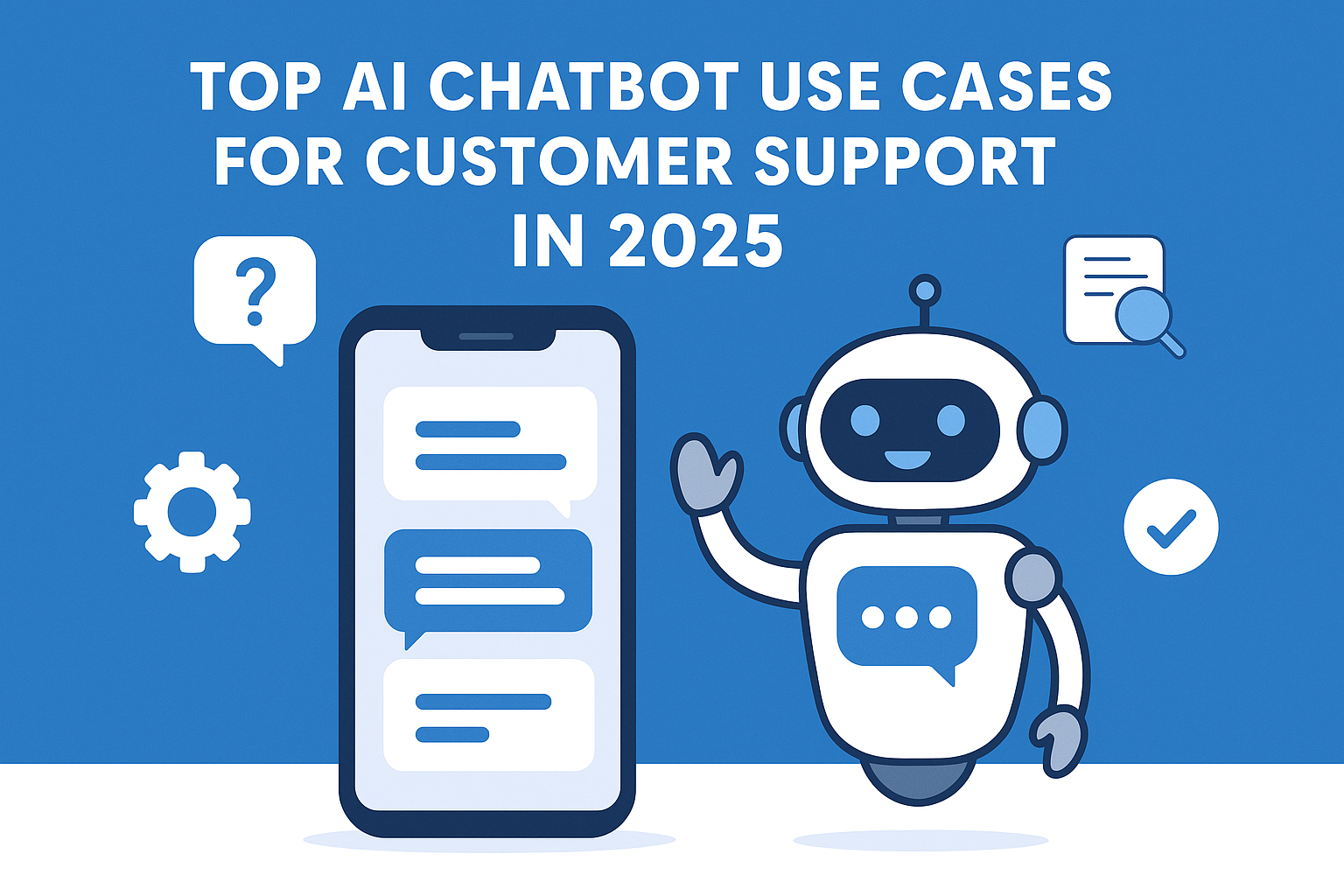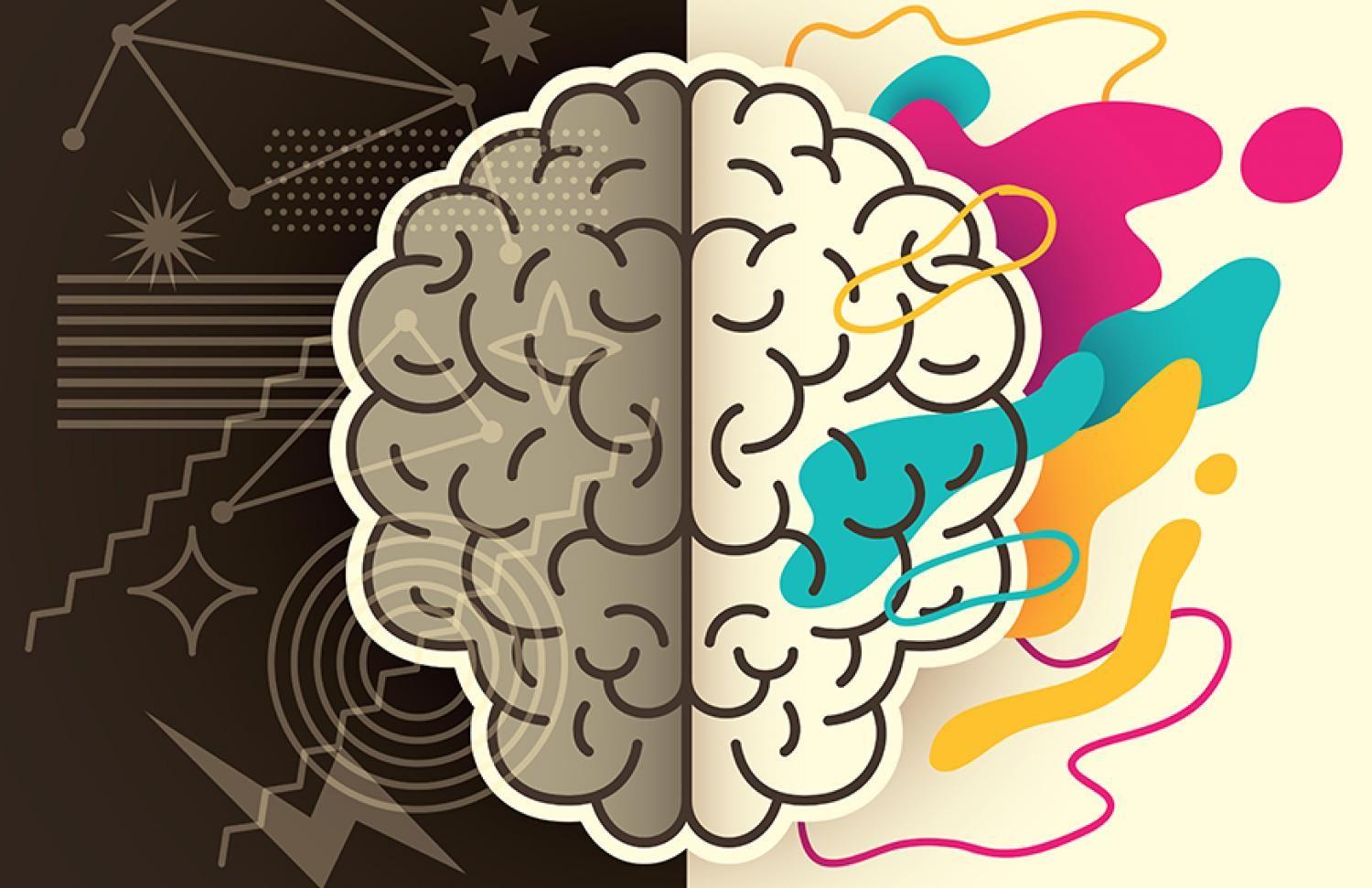Top AI Chatbot Use Cases for Customer Support in 2025

In today’s fast-paced digital world, customers expect instant responses and personalized support. Businesses that fail to meet these expectations risk losing loyalty and revenue. This is where AI chatbots have emerged as a game-changer in customer support. By 2025, AI chatbots are expected to become more intelligent, responsive, and capable of handling complex customer interactions. They not only streamline operations but also provide businesses with actionable insights to enhance customer experience.
AI-powered chatbots are no longer just simple virtual assistants—they are evolving into intelligent support agents that can handle a wide range of tasks, from answering FAQs to troubleshooting technical issues. This blog explores the top use cases of AI chatbots in customer support and why they are critical for modern businesses.
What is an AI Chatbot?
An AI chatbot is a software application designed to simulate human-like conversations with users through text or voice interfaces. Unlike traditional rule-based chatbots, which can only respond to predefined commands, AI chatbots leverage machine learning, natural language processing (NLP), and data analysis to understand user intent, process queries, and provide accurate responses.
The main difference between rule-based and AI-powered chatbots lies in intelligence. While rule-based chatbots can only answer specific questions using fixed scripts, AI chatbots continuously learn from past interactions, improving their responses over time. This makes them ideal for handling complex customer queries, providing personalized solutions, and even predicting customer needs.
Why Businesses Are Adopting AI Chatbots
Companies worldwide are rapidly integrating AI chatbots into their customer support strategies. Here’s why:
-
24/7 Availability – Unlike human agents, AI chatbots never sleep. They ensure round-the-clock assistance, helping businesses meet the expectations of customers across different time zones.
-
Cost-Effective Support – Deploying AI chatbots reduces the need for large customer support teams. Businesses can handle a higher volume of queries at a fraction of the cost.
-
Enhanced Customer Satisfaction – Quick and accurate responses improve customer experience, reduce wait times, and increase engagement.
-
Scalability – During peak seasons or sudden surges in demand, chatbots can handle thousands of queries simultaneously without compromising service quality.
-
Data-Driven Insights – AI chatbots collect valuable data from customer interactions, helping businesses understand preferences, pain points, and behavior patterns.
Top Use Cases of AI Chatbots in Customer Support
AI chatbots have transformed customer support across industries. Here are the most impactful use cases of AI chatbots in customer support in 2025:
Automated FAQs and Knowledge Base Assistance
Many customers have recurring questions regarding products, services, or policies. AI chatbots can instantly answer these FAQs, eliminating the need for human intervention.
For example, in e-commerce, chatbots can provide details about return policies, payment methods, or product specifications. Similarly, SaaS companies use chatbots to guide users through software features or troubleshooting steps. By automating these routine queries, businesses save time and ensure customers receive immediate responses.
Order Tracking and Status Updates
Tracking orders and deliveries is one of the most common customer queries. AI chatbots can integrate with order management systems to provide real-time updates, including shipment status, estimated delivery times, and tracking numbers.
This not only reduces repetitive calls to support teams but also enhances transparency, keeping customers informed and satisfied. Businesses in retail, food delivery, and logistics are leveraging this use case to improve operational efficiency.
Personalized Customer Interactions
Modern customers expect personalized experiences rather than generic responses. AI chatbots analyze user data, browsing behavior, and previous interactions to deliver tailored recommendations.
For instance, a fashion retailer’s chatbot can suggest products based on a customer’s purchase history, size preferences, and style trends. Personalized support builds stronger relationships, increases conversions, and promotes brand loyalty.
Multilingual Support
Global businesses face challenges when interacting with customers who speak different languages. AI chatbots equipped with multilingual capabilities can converse in multiple languages, breaking down language barriers.
This feature allows companies to expand their reach internationally without hiring additional staff, ensuring a seamless support experience for users worldwide.
Lead Generation and Customer Onboarding
AI chatbots are not limited to support—they also play a crucial role in lead generation and onboarding. Chatbots can qualify leads by asking relevant questions, assessing interest levels, and collecting contact information.
For new customers, chatbots provide guidance through onboarding processes, tutorials, and setup instructions, ensuring a smooth start with minimal human intervention. This improves conversion rates and accelerates the customer journey.
Issue Resolution and Troubleshooting
Handling complaints and troubleshooting product issues can be time-consuming for human agents. AI chatbots can quickly identify problems, suggest solutions, and even escalate critical cases to human representatives when necessary.
For example, in tech support, a chatbot can guide users through software installation errors, connectivity issues, or password resets, saving both time and resources.
Feedback Collection and Surveys
Customer feedback is essential for improving products and services. AI chatbots can automatically collect feedback, conduct surveys, and gauge customer satisfaction in real-time.
Unlike traditional survey methods, chatbots engage users conversationally, resulting in higher response rates. The collected data helps businesses make informed decisions, enhance service quality, and address concerns proactively.
Industry Examples of AI Chatbots in Customer Support
AI chatbots have made significant inroads across multiple sectors:
-
E-Commerce – Retailers use chatbots to manage order inquiries, recommend products, and handle returns.
-
Banking and Finance – Chatbots assist with account information, fraud alerts, transaction queries, and loan applications.
-
Healthcare – AI chatbots schedule appointments, provide symptom-based guidance, and answer insurance-related queries.
-
SaaS and Technology – Software companies employ chatbots to onboard users, troubleshoot issues, and provide feature recommendations.
These examples demonstrate the versatility and efficiency of AI chatbots across various business domains.
Best Practices for Implementing AI Chatbots
To maximize the benefits of AI chatbots in customer support, businesses should follow these best practices:
-
Human Handoff – Ensure a seamless transition from chatbot to human agent for complex queries.
-
Continuous Learning – Regularly update the chatbot’s knowledge base to improve accuracy and relevance.
-
User-Centric Design – Build conversational flows that are intuitive and easy to navigate.
-
Data Security – Protect customer data by implementing robust security measures and complying with regulations.
-
Monitoring and Analytics – Track chatbot performance, identify gaps, and optimize interactions based on analytics.
Future of AI Chatbots in Customer Support
The future of AI chatbots is promising. By 2025, we can expect:
-
Advanced Natural Language Understanding (NLU) – Chatbots will better comprehend context, slang, and complex queries.
-
Voice and Multimodal Support – Conversational AI will expand beyond text to voice, video, and visual assistance.
-
Predictive and Proactive Support – AI chatbots will anticipate customer needs and suggest solutions before issues arise.
-
Seamless Omnichannel Integration – Customers will experience consistent support across websites, apps, social media, and messaging platforms.
These trends indicate that AI chatbots will become indispensable tools for businesses aiming to deliver exceptional, efficient, and personalized customer support.
Conclusion
AI chatbots are revolutionizing customer support by providing instant responses, personalized interactions, and actionable insights. From automated FAQs to lead generation, multilingual support, and proactive troubleshooting, chatbots are enhancing customer satisfaction while reducing operational costs.
As businesses strive to meet rising customer expectations, AI chatbots in 2025 will continue to evolve, delivering smarter, faster, and more human-like experiences. Investing in AI chatbot technology is no longer optional—it’s a strategic move for companies looking to stay competitive and customer-centric in the digital era.








